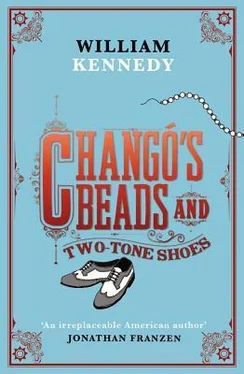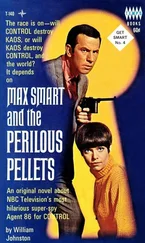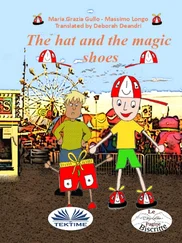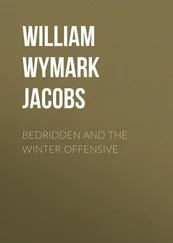Omar had been driven off his land by the army, which was clearing out all villages where Fidel had gotten, or might get, help or supplies, creating a no-man’s-land where friend or foe would be shot on sight, and which opened great areas to the bombing raids the air force was planning. This was a replay of 1896 and ’97 when Capitán-General Valeriano Weyler, the Spanish commander of all Cuba, emptied villages to isolate rebels who lived in them invisibly. He herded 300,000 peasants, maybe more, no one kept count, into reconcentration camps where hundreds of thousands died of hunger and disease, earning Weyler his Cuban sobriquet, “The Butcher,” and establishing his reputation as one of history’s great villains.
In the seventh hour of their journey Quinn and Arsenio’s son waited at a small creek while the burly man went ahead to confirm that they were near their destination. He returned and they walked thirty more minutes into the sunrise, feeling the onset of the intense morning heat, and found the Comandante at his headquarters of the moment, a primitive hut whose occupants had been evacuated by the army. He was sitting on a stool, two men with him and four more circulating around the hut watching for danger. Quinn would count another twenty-some men at rest among the trees.
“Mr. Quinn,” said Fidel, standing up and confirming that he was six-feet-three, three inches closer to the moon than Quinn, “they tell me you interrupted your honeymoon to come here.” There was that noted beard, black as the forest night, and an amiable smile. He wore fatigues and a cap he kept on throughout the interview.
“They are right,” said Quinn, “but my pilgrimage here is part of the honeymoon. Without coming to talk to you about revolution I wouldn’t be married.”
“Then you are in my debt. You are wearing beads of Santeria. Are you a follower?”
“My bride is, but I am learning. A babalawo gave me these beads. They represent Changó.”
“My mother was a Catholic but also followed the Santeria. When she was pregnant a babalawo told her I was the son of a warrior god. She initiated me with a ceremony when I was still in the womb and she said Changó put in an appearance.”
“Wherever I go in Cuba I run into Changó. But the womb is new.”
Fidel was thirty-one, a year and a half up on Quinn, and he looked fit, sanguine, and on edge, which Quinn thought was probably his permanent condition. He talked softly and told Quinn to do likewise, for the moisture of the morning carries words great distances and who knows who might be passing by out there? He spoke in Spanish, with one of his soldiers interpreting in English. Quinn identified himself as Daniel Quinn the Second, grandson of Daniel Quinn the First who came to Cuba to prove Carlos Manuel de Céspedes was not dead, as the Spaniards were claiming; and Herbert Matthews did the same for you. Now you’re famous for not being dead; and Fidel agreed. Quinn said he would point out in his story that during an interview one month after Matthews, the Comandante still showed no symptoms of death.
Fidel thought he remembered the americano Quinn’s book on Céspedes from his University days. Quinn said the Cubans called his grandfather El Quin. Fidel remembered an American called El Inglesito, fellow named Reeve, who had been a Union soldier in the Civil War and then came down and fought four hundred battles with the Mambises.
Quinn said he had found parallels between Fidel and Céspedes, who told El Quin, We survive off the enemy. We take their guns, their food, their clothes, their horses, even their guitars and bugles. “You did that at La Plata, no?”
“Yes, but only a few guns, some shoes,” said Fidel. “We need many more guns.”
“My wife sent you that batch of weapons Arsenio delivered yesterday,” Quinn said.
“Your wife?”
“Renata Suárez Otero. She runs guns in her spare time. She was close to the Directorio but most of them are dead from the Palace attack.”
“You must send her my deep, deep gratitude. That attack, it was useless bloodshed. We don’t want to assassinate Batista. We want to abolish the system. We are fighting against reactionary ideas, not individuals.”
“Spain sent six sets of assassins to kill Céspedes,” said Quinn, “and all of them failed. He survived the war for five years.”
“Assassination is at large on the streets of Cuba,” Fidel said. “When Grau was president there were a hundred political assassination attempts in four years, and more than sixty of them succeeded. I was at the University and I survived one myself.”
“Your survival,” Quinn said. “How do you explain it? You didn’t die in combat at the Moncada barracks, or in Batista’s jail, or shipwrecked in the swamp, or being hunted up here by half the Cuban army? This smacks of a scripted life, Achilles without a fatal heel, your mother giving birth to a divinity. Do you think that’s the reason you don’t die? Or are you just lucky?”
“Luck reduces the merits of a man,” Fidel said. “When I was captured at Moncada they were ready to cut me in pieces and fry me, but a lieutenant in Batista’s army would not let his men shoot me. He even refused to give me to his superior, who was a famous killer. ‘You can’t kill ideas,’ the lieutenant said, and he turned me over to the police for trial. Batista tried to poison me in jail but people handling the food sent me warning notes, so I went on a hunger strike. Later I got food from elsewhere.
“When Batista visited the prison, I sang the Twenty-sixth of July marching song to him, and he put me in solitary for forty days without light. He is not a music lover. I read books by the light of a liquid olive oil candle with a match for a wick and it lasted three hours. Then I had to get out from the mosquito net to make another candle, and the mosquitoes would follow me back under and torture me until I killed them all. People sent me books and I also asked the jailers for José Martí’s writings, but they said he was too revolutionary. So I asked for Marx’s Das Kapital . I told them I wanted to become a capitalist when I got out of prison, and they gave it to me. Until then I had read Marx only to page 380.
“Also, this wonderful peasant bandit, a Precarista who helped us survive when we first came up here, went home to see his mother and betrayed us to the army, taking ten thousand dollars to kill me. He rejoined us, and that day I decided we should move our camp. Why? Not because of luck, but because he had asked questions about where we posted our sentries. I still trusted him, but nevertheless we moved to a higher point that we could control and conceal. That night the traitor slept with his pistol under a blanket, right alongside me. He could have killed me but his cojones had shriveled. The next morning B-26 bombers and F-47 fighters bombed and strafed the area we had abandoned. We survived, but not by chance. My moving us was instinctive, not lucky.”
“What happened to the traitor?”
“He died with lightning. We shot him during a thunderstorm.”
Quinn made coded notes on all that was said, as brief as possible. He would rely on memory for reconstituting this talk, for if he was caught by the army, explicit notes could be a death warrant.
Fidel offered him a plate of congri —rice and beans cooked together — but Quinn said he could not take food out of the mouths of the rebel army. Fidel insisted and said there was plenty for today, that the men had eaten their fill; and so Quinn ate with great relish. He brought up Hemingway, a perennial soldier and man of the gun, and told of Cooney’s song and Hemingway’s one-two, and the challenge. Should Hemingway fight such a duel?
“Yes, of course,” said Fidel. “He is too important to refuse a challenge. He loves war, and a duel is war on a scale of one to one. Cubans love duels. Prío, when he was president, passed a law making duels illegal, as if that would stop them. It’s like passing a law against war. Tell Hemingway he must find a way not to lose. If he can wait until we defeat Batista I will organize the duel and see that he wins. He is too valuable to lose his life for such a thing. I like the way he writes, how he has conversations with himself. His novel on the Spanish civil war can teach you about battle.”
Читать дальше












